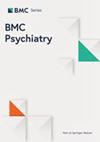在资源匮乏的环境中,开展一项实用随机试验,研究健康饮食与正念认知疗法相结合对减轻大学生抑郁症状的效果:营养心灵项目方案
IF 3.4
2区 医学
Q2 PSYCHIATRY
引用次数: 0
摘要
尽管人们对精神疾病的认识在不断提高,治疗方法也在不断改进,但精神疾病仍是全球发病率的主要原因。值得注意的是,像乌干达这样的中低收入国家受到此类疾病的影响尤为严重。在这些国家中,学生的抑郁症状尤其严重,贫困、营养不良和公共卫生治理不力加剧了这一问题,但对这一问题的研究明显不足,因此很难实现联合国的几个可持续发展目标。目前的治疗方案不足以应对抑郁症带来的日益沉重的负担。这对于资源匮乏的地区,尤其是撒哈拉以南非洲地区来说更具挑战性,这表明需要替代治疗方法,一旦证明有效,就能迅速应用。因此,这项随机对照试验(RCT)的主要目的是研究低成本健康饮食(以乌干达当地食物为基础)与易于获得的正念认知疗法相结合能否减轻乌干达大学生的抑郁症状。我们将在乌干达最大的公立大学马凯雷雷大学(Makerere University)招募男女学生,开展一项开放、意向治疗、双臂 RCT 研究。通过流行病学研究中心抑郁评分(CES-D)对抑郁症状的自我报告评估得分超过预定临界值的学生有资格被纳入研究,并将被随机分配到干预组(n = 125)或对照组(n = 125)。干预组将接受关于如何准备地中海式健康饮食以及如何坚持正念认知疗法原则的小组教育课程。结果测量包括自我报告的抑郁症状、生活质量和饮食摄入量。此外,我们还将进行成本效益分析。RCT 干预将持续 9 个月,之后再进行 15 个月的定期数据收集。我们在此介绍一种治疗生活在资源有限环境中的大学生抑郁症状的新方法,即将健康饮食与低门槛心理疗法相结合。如果这一干预措施取得成功,我们的项目将被视为针对患有常见精神障碍(抑郁症)的年轻人的循证行为实践的一个步骤,有利于公共心理健康倡议和管理。该研究已在 ClinicalTrials.gov 注册(ID:NCT05848973)。注册日期为 2023 年 8 月 14 日。本文章由计算机程序翻译,如有差异,请以英文原文为准。
A pragmatic randomized trial to examine the effect of combining healthy diet with mindfulness cognitive therapy to reduce depressive symptoms among university students in a low-resource setting: protocol for the NutriMind Project
Mental health disorders still rank as leading causes of morbidity worldwide despite increasing awareness and improvements in treatment. Notably, low- and middle-income countries like Uganda, are disproportionately affected by such disorders. The burden of depressive symptoms in these countries is particularly high among students, aggravated by poverty, malnutrition, and inadequate public health governance, yet it is clearly under-researched, making it hard to achieve several of UN Sustainability Development Goals. Current treatment options are insufficient to tackle the increased burden of depressive disease. This is more challenging for low-resource regions especially in Sub-Saharan Africa, suggesting the need for alternative treatments that can swiftly be applied if proven effective. The main aim of this randomized controlled trial (RCT) is therefore to examine if a low-cost healthy diet (based on local Ugandan foods) combined with easy-to access mindfulness cognitive therapy can reduce depressive symptoms among university students in Uganda. We will recruit female and male students at Makerere University, the largest public university in Uganda, to an open, intention-to-treat, two-armed RCT. Those who score above a predefined threshold on a self-reported assessment of depressive symptoms, measured by the Center for Epidemiological Studies – Depression score (CES-D), are eligible for study inclusion and will be randomized to either an intervention (n = 125) or a control (n = 125) group. The intervention group will receive educational group-based sessions on how to prepare a Mediterranean-type of healthy diet and how to adhere to the principles of mindfulness-based cognitive therapy. Outcome measures include self-reported depression symptoms, quality of life, and dietary intakes. In addition we will perform a cost-effectiveness analysis. The RCT intervention will last 9 months, followed by additional 15 months with regular data collections. We here describe a novel approach to treat depressive symptoms among university students living in resource constraint settings, by combining a healthy diet with low threshold psychotherapy. If this intervention succeeds, our project can be viewed as a step towards evidence-based behavior practices for young adults with a common mental disorder (depression) that are beneficial to public mental health initiatives and management. The RCT is registered in ClinicalTrials.gov (ID: NCT05848973). The date of registration was August 14, 2023.
求助全文
通过发布文献求助,成功后即可免费获取论文全文。
去求助
来源期刊

BMC Psychiatry
医学-精神病学
CiteScore
5.90
自引率
4.50%
发文量
716
审稿时长
3-6 weeks
期刊介绍:
BMC Psychiatry is an open access, peer-reviewed journal that considers articles on all aspects of the prevention, diagnosis and management of psychiatric disorders, as well as related molecular genetics, pathophysiology, and epidemiology.
 求助内容:
求助内容: 应助结果提醒方式:
应助结果提醒方式:


